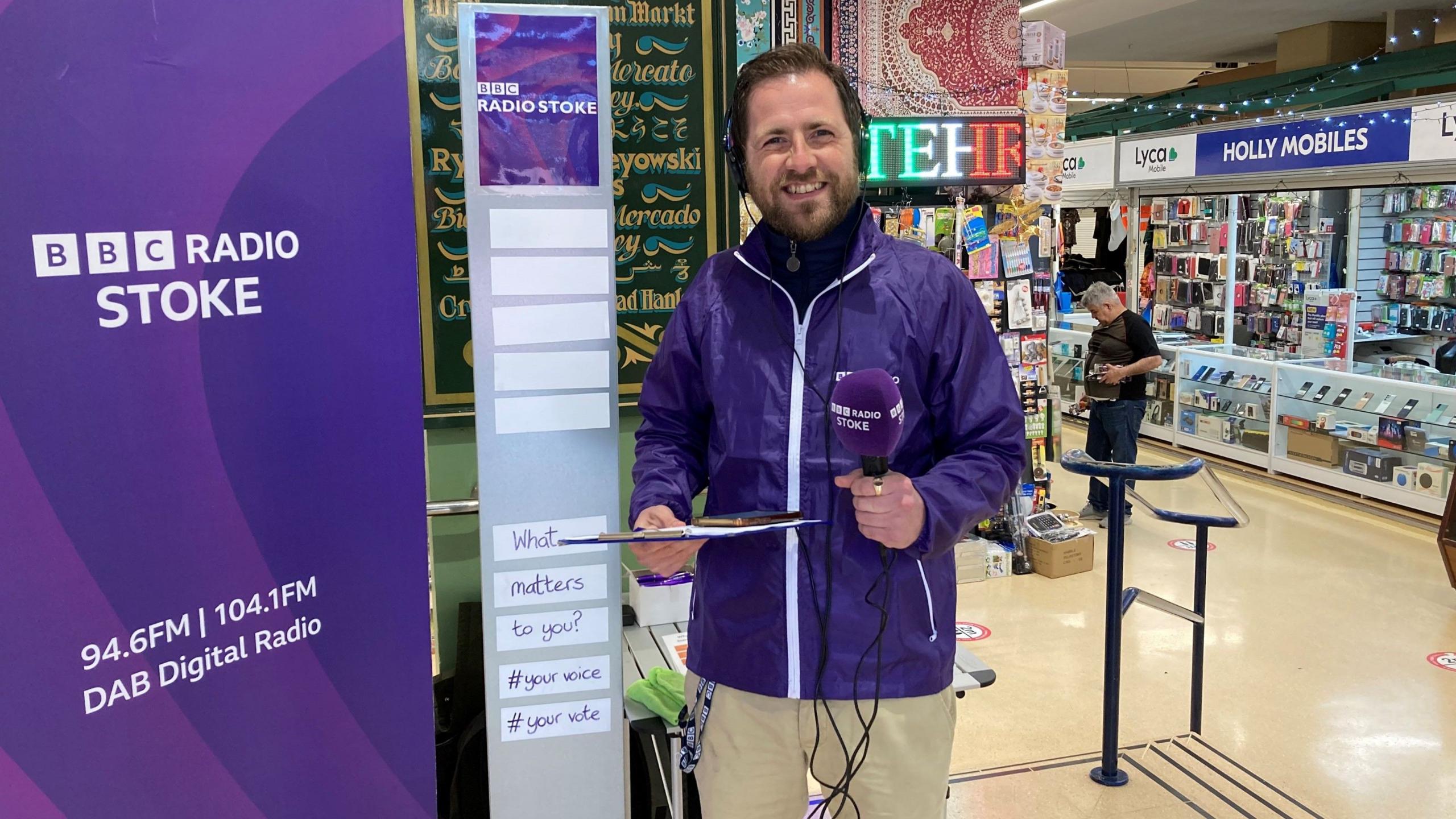Why young voters do not see their futures in home city
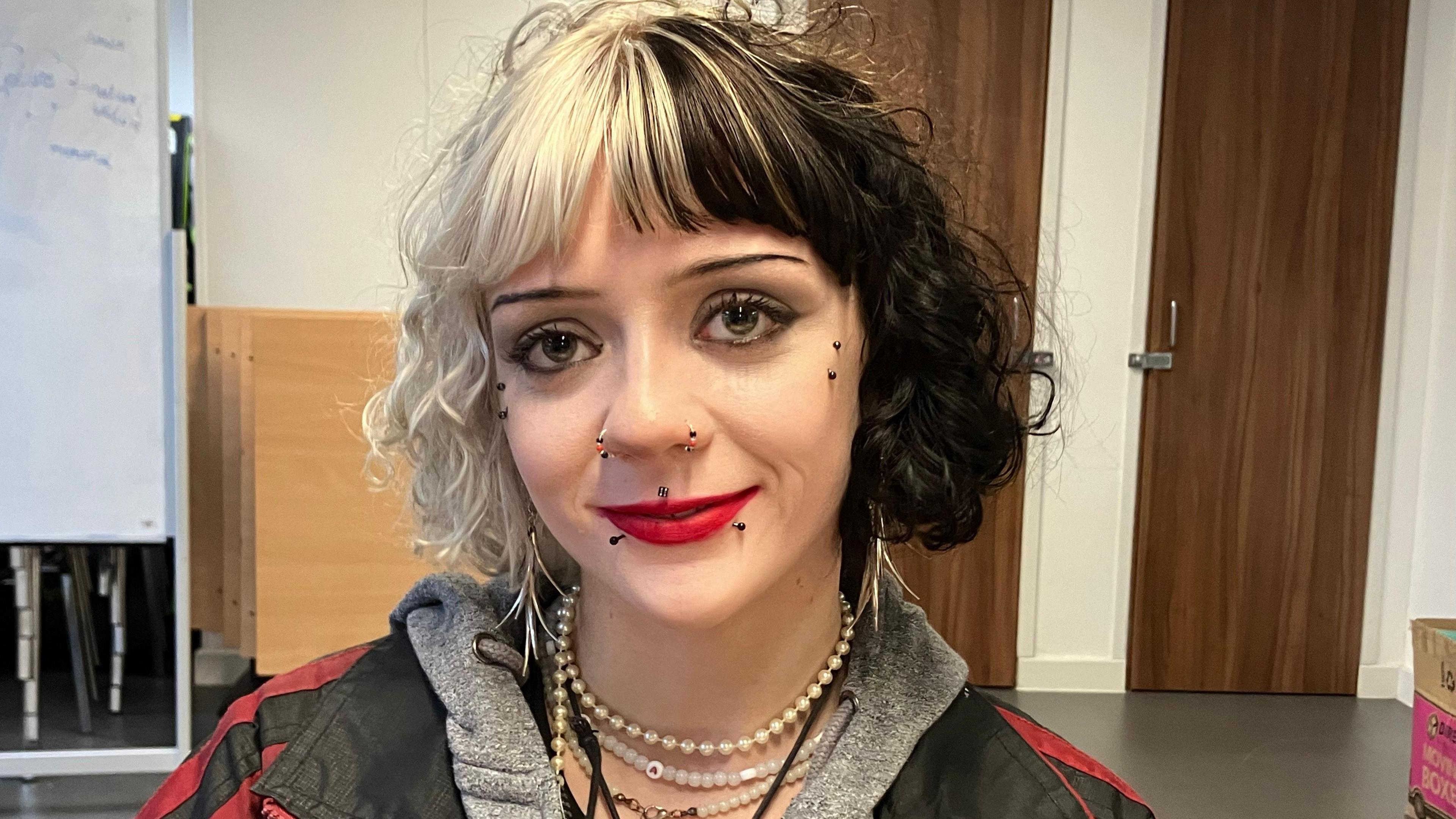
Resources in the city of Stoke-on-Trent "aren’t great", says 19-year-old Lilly Evanson
- Published
Waiting lists for mental health support, being able to afford a home and feeling safe on the streets - these are just some of the issues that matter to young voters ahead of the general election.
Thousands of young people will be voting for the first time when they head to the polls on 4 July.
With about a month to go, the BBC spoke to young voters across Stoke-on-Trent about their main concerns for the future.
One student, who has recently turned 18, said he had been looking for a job for almost a year but been unable to find one.
Recent figures, external from the Office for National Statistics (ONS) showed employment in Stoke-on-Trent has increased compared with the previous year, with unemployment falling.
Lilly Evanson lives in Stoke but cannot see herself staying there much longer because of a "lack of opportunities, money [and] funding that young people need".
The 19-year-old wants to to study photography in Manchester as resources in her home city "weren't great".
'Things getting worse'
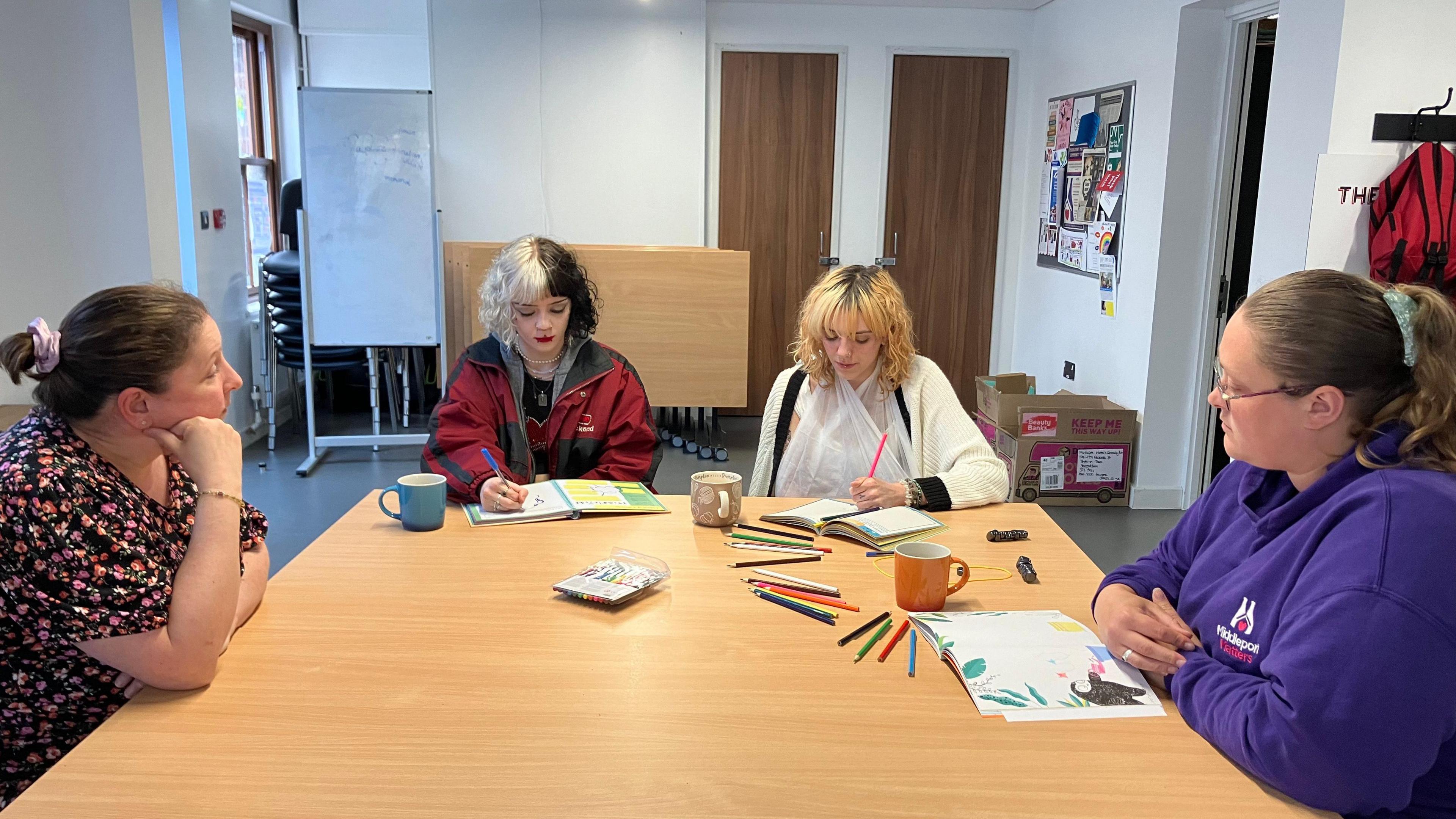
Young voters at Middleport Matters, in Stoke-on-Trent, said street safety needed to be tackled
After seeing a lot of her friends struggle with accessing mental health support because of long waiting lists, Lilly said the lack of services concerned her the most because "things are just getting worse".
"I also think the healthcare system, it’s not great, you can’t get an appointment, you can’t get help," she said.
"I think it’s very important that more funding needs to be put into the care system and social services because there’s a lot of young people with no way out, feeling hopeless."
Other concerns include the housing crisis and Brexit, which she said "could have been dealt with better".
Lilly said the education system for creative subjects also "really lacks, especially in Stoke".
"It’s important to highlight that creative subjects can be successful too," she added.
'Nothing in Stoke'
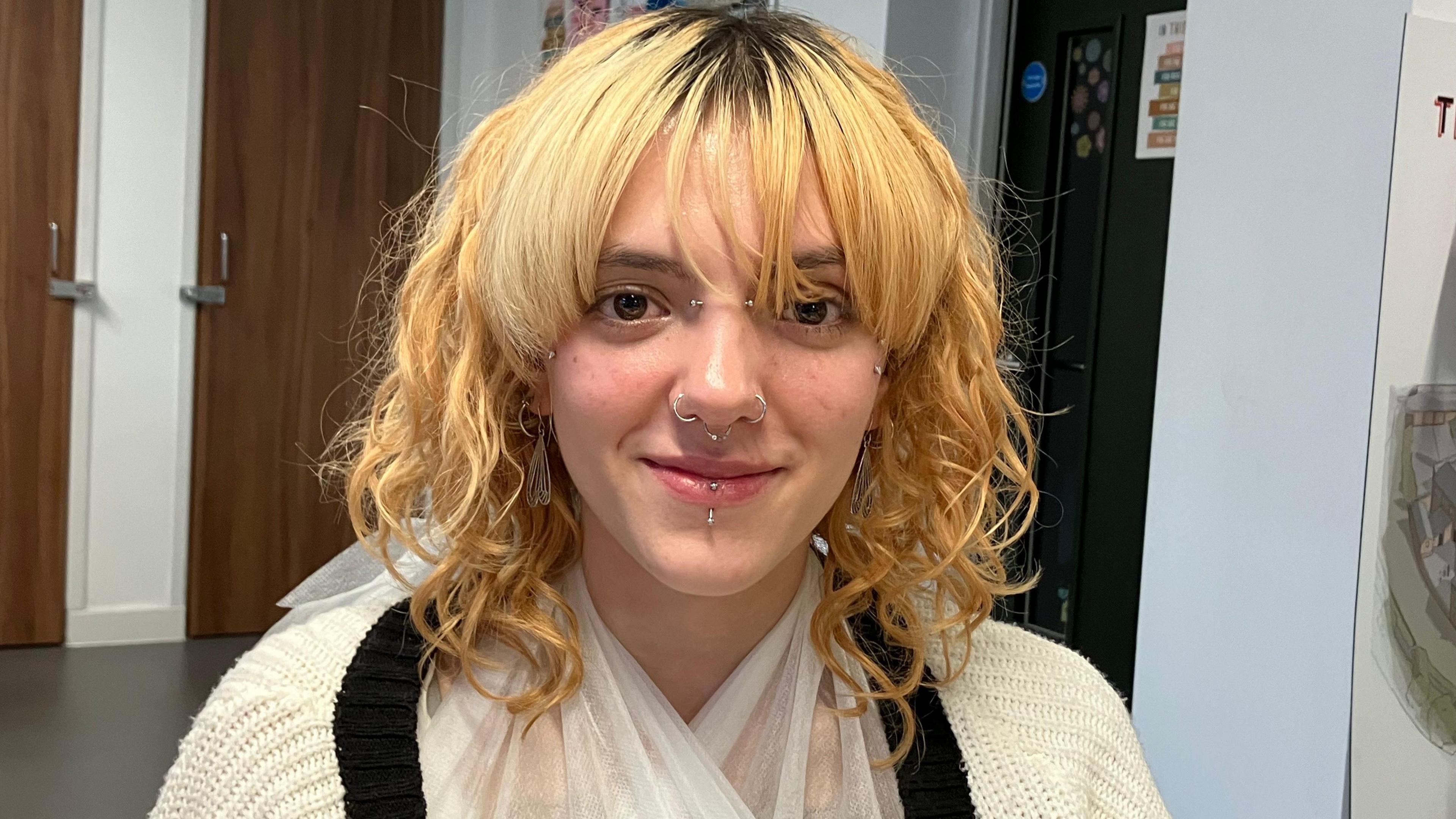
Jess White, 19, said she was passionate about voting and "everyone should vote"
For Jess White, health services and foreign affairs are her main concerns, alongside the cost of living and housing, which she described as a "huge issue" she was "really worried about".
"It’s affecting everyone, we need someone who is going to tackle that," she told the BBC.
"Everything’s so expensive, the houses, there’s just none available."
The 19-year-old, who grew up in Stoke-on-Trent, will also be voting for the first time in the upcoming election.
Passionate about voting, she has encouraged her friends and others to vote and "to feel confident" during the process by educating themselves and making an informed decision.
"As a woman as well, I think when you look back at history and how women have fought for the right to vote, and everything that happened with the suffragettes and everything – how can you not vote?" she asked.
Jess also said she could not see herself continuing to live in the area if it "stays the same way it is now".
"There’s nothing in Stoke, the lack of things to do in Stoke is really concerning. All the shops are shutting down, there’s no places to go," she said.
Both Jess and Lilly said street safety was also an issue that needed to be addressed by election candidates.
"As a young girl walking the streets, if you’re alone it’s really scary, like you feel like you have to call someone. You’re just always on edge," Jess explained.
“There's nowhere safe," Lilly added. "You always feel unsafe on the streets I would say, especially being young."
'Struggle with healthcare'
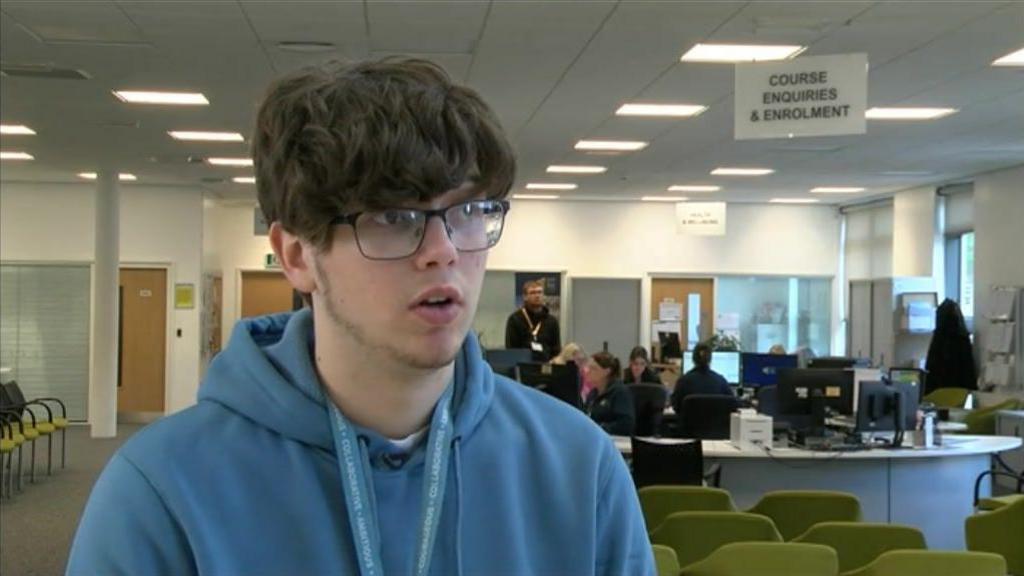
Lewis McDonald, 18, said he would consider staying in Stoke-on-Trent if the city improved
Media student Lewis McDonald has recently turned 18 and hopes to stay in Stoke-on-Trent so he can support his family.
He has been looking for a job for "the best part of a year" but said he had failed to find one.
He said he would consider moving out of the city if he received a "good job offer" as the city was not the cleanest or safest.
"If whichever government it is could really improve the safety… and healthcare alone. That would be my key hopes really," he explained.
"If that changes then I would consider staying in Stoke, but if not it becomes whichever option is just better for me."
Lewis, who will be voting for the first time, admitted he was not too "in tune" with politics, but his mum had been "very persistent" in ensuring he would use his vote.
"In the past we’ve had very bad experience with just how everything is in general, so we’ve struggled with healthcare, mental health, stuff like that and it all takes a toll on the household we’re in as we’re a low-income house," he explained.
Speaking with his friends, crime in the city, especially in Hanley, has come up as a "big concern".
"Just even going home, just to go to the bus station, it can be a risk sometimes and it would be nice for that to plummet in risk really, as well as mental health," he continued.
'Very limited' opportunities
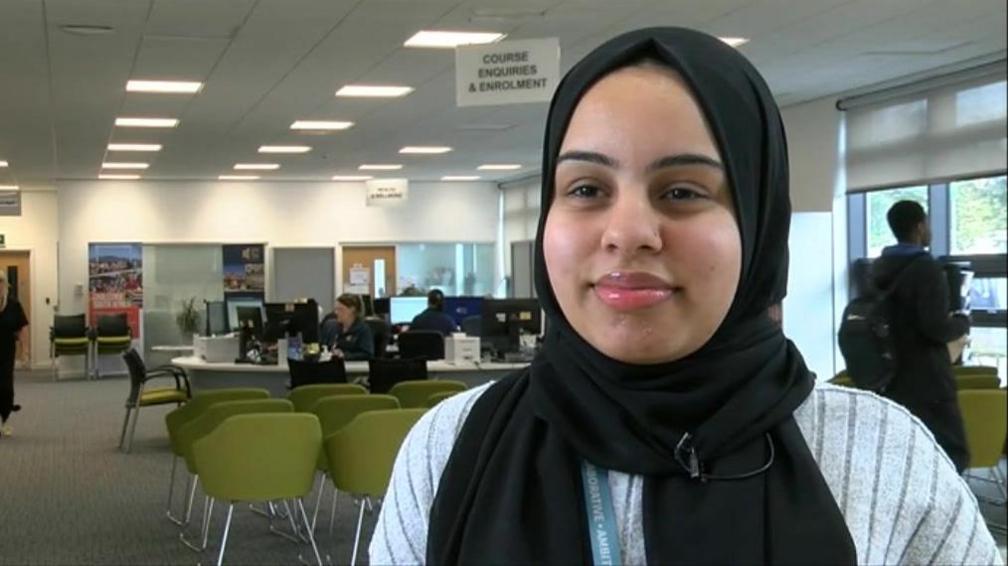
Young people were concerned about litter as it can be "dangerous," said Aniqah Razwan
Another student, Aniqah Razwan, 19, is studying health and social care at a local college and will also be voting for the first time.
As a young person living in the city, she said other people were concerned about the litter that had been "everywhere" and around the pathways.
"That’s very dangerous, someone can fall over. There’s loads of roadworks as well – that affects a lot of people. It takes a lot of time, traffic, which annoys people a lot," she said.
Aniqah said voting was "very important" to young people as it was the "new generation and impacts most of them".
With one year of studying left, she said she wanted to use her course to get a job at the council, "but it's very limited" and there "should be more opportunities".
“You have to go out of cities to get a job, which is a bit difficult, but it will be fun to make new friends," she added.
Follow BBC West Midlands on Facebook, external, X,, external and Instagram, external, Send your story ideas to: newsonline.westmidlands@bbc.co.uk, external
Related topics
- Published4 July 2024
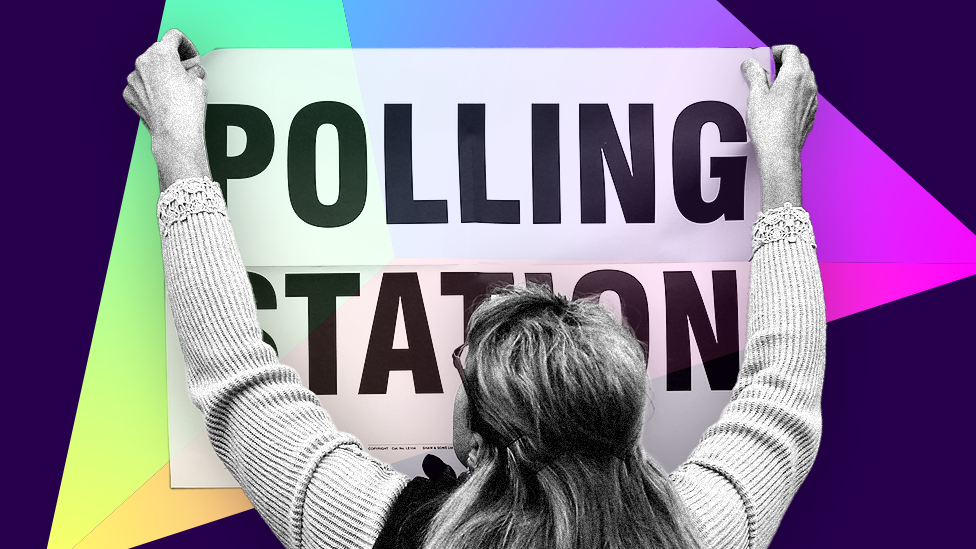
- Published3 July 2024

- Published3 June 2024

- Published4 June 2024
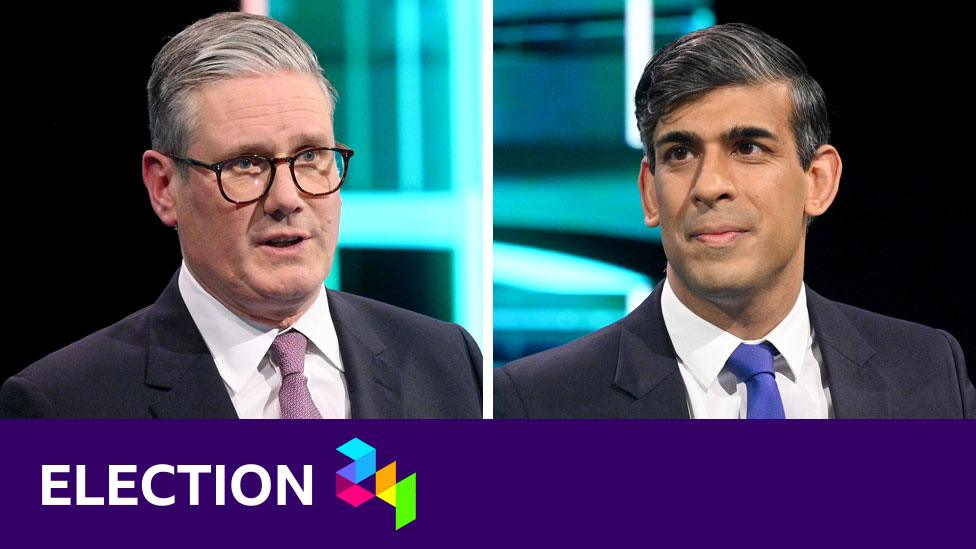
- Published3 June 2024
